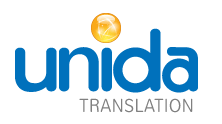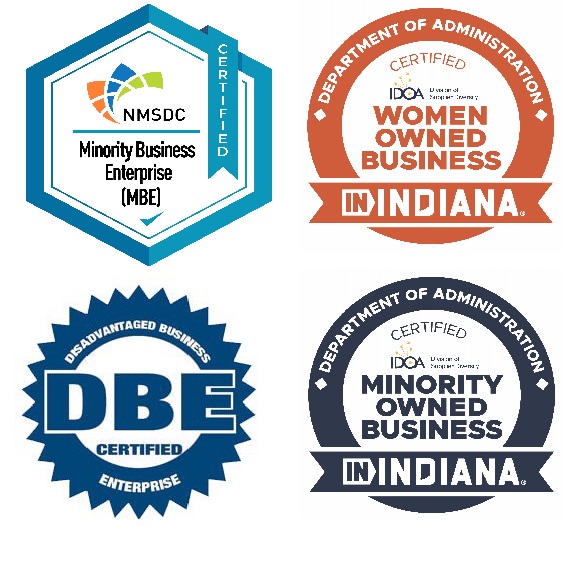Public agencies, educational institutions, healthcare organizations, and contractors working with government funds often face strict vendor compliance requirements. These requirements frequently include hiring certified Minority and Women’s Business Enterprises (M/WBEs).
Understanding how M/WBE certification works, how it applies to language services, and how to collaborate with qualified vendors is essential for government contract compliance.
What Is an M/WBE Vendor?
An M/WBE vendor is a business officially recognized as being at least 51% owned, managed, and controlled by individuals who identify as part of a minority group or as women. Certification is issued at the state or municipal level, and while criteria vary by jurisdiction, most require majority ownership, day-to-day operational control, and proof of U.S. citizenship or legal residency status for the owner.
Certification has two purposes. It opens doors for businesses owned by underrepresented individuals to access contract opportunities that may otherwise be out of reach, and it helps government agencies and contractors meet supplier diversity goals outlined in procurement guidelines. Many states also set minimum participation levels for M/WBE vendors, either within each contract or across overall agency spending.
Why Supplier Diversity Requirements Exist
Supplier diversity programs were created to promote equity, inclusion, and opportunity for historically marginalized groups. Because government contracts act as powerful economic drivers, opening access to those contracts helps reduce disparities in business ownership, revenue growth, and long term stability. These programs also encourage economic development in communities that traditional procurement processes may otherwise overlook.
From a compliance perspective, using M/WBE vendors is not optional–it is often a legal requirement. Bids for public contracts can be disqualified if applicants cannot demonstrate that a portion of the work will be awarded to certified M/WBE businesses. These rules apply broadly, covering industries such as construction, consulting, healthcare, education, and language services.
Documentation Needed for M/WBE Compliance
To verify M/WBE compliance, procurement files must contain specific documentation:
● A copy of the vendor’s official certification showing active status, a current expiration
date, and alignment with the agency’s jurisdiction
● Signed contracts outlining the scope and dollar value of the work assigned to the
vendor
● Proof of performance, including invoices, payment records, service logs, and project
deliverables
● Communication records demonstrating that the M/WBE vendor was included early in
the process, not added later to meet quotas
Why Language Services Are Part of M/WBE Participation Plans
Language services are often included in M/WBE participation plans because they fall into the professional subcontracting category. Projects involving healthcare, education, transportation, legal access, and community outreach all rely on multilingual communication.
Translation and interpretation services play a dual role in procurement. They support the technical goals of a project by producing accessible, accurate documentation, while also helping agencies meet supplier diversity standards. By working with certified translation providers, agencies can address both needs at once, reducing the complexity of managing multiple vendors and strengthening documentation integrity.
Consequences of Failing to Meet M/WBE Goals
Agencies and contractors that fail to meet M/WBE participation goals may face:Compliance reviews
● Funding delays
● Corrective action plans
● Financial penalties
● Disqualification from future bidding opportunities
Agencies and contractors must prove that all reasonable steps were taken to meet participation goals. This can include outreach to certified vendors, public posting of subcontracting opportunities, and documentation of waivers or substitutions. Without proper records, agencies cannot defend against compliance failures during audits or public inquiries.
Including certified vendors during early planning reduces the likelihood of shortfalls. This includes verifying availability, confirming certification status, and ensuring that vendors deliver the required services on time and within scope.
How to Find and Verify M/WBE-Certified Language Vendors
Most states or municipalities maintain certified vendor directories, allowing procurement officers to search by service category, certification type, location, or business name. Some national organizations also provide directories of M/WBE vendors, though local certification is usually required for state-funded contracts.
Once a vendor is identified, verification involves checking their certificate against the issuing agency’s database. Procurement staff must confirm that the certification is active, appropriate for the services being procured, and issued by a recognized authority. Relying on outdated or unverifiable documentation exposes the agency to risk during audits.
Reviewing the vendor’s service history–such as their experience with certified translations or interpreters credentials–helps ensure they can meet the technical and legal requirements of the project.
When to Involve M/WBE Language Providers in Project
Planning
Inclusion must begin before the contract is awarded. M/WBE language providers should be identified early in the project planning or solicitation stage. This allows sufficient time to review capabilities, gather documentation, and incorporate the vendor into the bid or contract strategy.
Early inclusion also ensures the language service scope aligns with the project’s technical requirements. These include delivery timelines, formatting requirements, confidentiality protocols, and volume estimates. Last-minute substitutions or additions may not be accepted by oversight agencies and can cause projects to fall out of compliance.
Early, consistent communication with certified vendors also makes it easier to build accurate schedules, pricing models, and risk assessments. It also reduces administrative strain during execution and reporting.
Unida Translation: A Certified M/WBE Language Services
Provider in Indiana
Unida Translation is proud to be officially certified as a Minority and Women’s Business Enterprise (M/WBE) by the Indiana Department of Administration. This recognition highlights our role as a trusted language services vendor for agencies and organizations seeking both quality and compliance.
Our credentials include:
● Minority Business Enterprise (MBE) – Chicago Minority Supplier Development
Council
● Minority and Women’s Business Enterprise (M/WBE) – Indiana Department of
Administration
● Disadvantaged Business Enterprise (DBE) – Indiana Department of Transportation
We provide expert translation and interpretation services in over 125 languages with specialization in legal, medical, financial, governmental, and operational fields. Our certified professionals deliver accurate, culturally appropriate, and timely results.
Let Unida Translation help you plan smarter, stay compliant, and achieve your supplier
diversity goals. Contact us today to schedule a consultation or request a quote.

